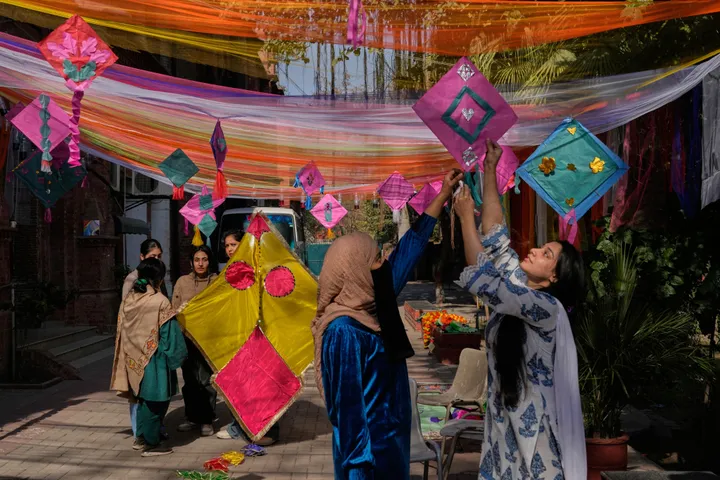Three Saudi women's rights activists whose arrests last year have been condemned worldwide are being honoured by PEN America.
Nouf Abdulaziz, Loujain al Hathloul and Eman al Nafjan have won the PEN/Barbey Freedom to Write Award, the literary and human rights organisation announced on Thursday.
The award was established in 1987 and is given to writers imprisoned for their work, with previous recipients coming from Ukraine, Egypt and Ethiopia among other countries.
In custody for working to "undermine the security" of the kingdom, Abdulaziz, Hathloul and Nafjan have openly opposed such government policies as a ban on women driving and the restriction of women's travel, education and other rights without approval from a male guardian.
Nafjan is a blogger and linguistics professor who has written for The Guardian and CNN among other publications.
Hathloul was a prominent opponent of the driving ban, lifted shortly after her arrest last year, and was previously also arrested in 2014 and detained for 73 days.
Abdulaziz is a journalist and blogger who has written for years about human rights violations.
On Wednesday, Hathloul and Nafjan were among those at a closed-door hearing in Riyadh, according to Amnesty International. Reporters were not allowed in.
The PEN award comes at a time of international outrage at Saudi Arabia and at Crown Prince Mohammed bin Salman, especially after the Saudi journalist and Washington Post columnist Jamal Khashoggi was murdered in October 2018 by Saudi agents at the country's consulate in Istanbul.
Last week, the United Nations Human Rights Council denounced Saudi Arabia's "continuing arrests and arbitrary detentions of human rights defenders."
Allegations of flogging and sexual assault
Activists have alleged that the PEN winners have been subjected to torture, including flogging and sexual assault. Saudi officials have denied the allegations.
"The fleeting hope that generational transition in the Saudi leadership would open the door toward greater respect for individual rights and international law has collapsed entirely, with individuals paying the highest price as the government resorts to rank barbarism as a blunt means to suppress and deter dissent," PEN America CEO Suzanne Nossel said in a statement.
"These gutsy women have challenged one of the world's most notoriously misogynist governments, inspiring the world with their demand to drive, to govern their own lives, and to liberate all Saudi women from a form of medieval bondage that has no place in the 21st century."
PEN officials have not determined who will accept the Freedom to Write Award on behalf of the three winners at the annual PEN gala, being held in Manhattan on May 21.
Others receiving prizes — and able to collect them in person — include Bob Woodward of Watergate fame and the CEO of Scholastic, Richard Robinson.
Raising awareness
PEN has long highlighted the Freedom to Write Award as a way of turning advocacy into concrete action, noting that 37 of the 43 previous winners have since been freed, at least in part because of the attention raised by the prize.
"It helped me to survive while I was in prison," said the 2016 winner, Ahmed Naji, an author and journalist who had been imprisoned in Egypt and now lives in Washington DC.
"When you're in prison, they want to isolate you from society and make you think what you wrote is worth nothing. So such awards give hope to the writer."























